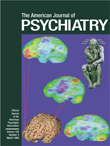Combination Treatment With Venlafaxine and Bupropion
To the Editor: We describe an apparent antidepressant response to a combination of venlafaxine and bupropion, despite previous unsuccessful trials of each agent alone.
Ms. A, a 42-year-old white woman, presented with dysthymia and major depression that had been successfully treated with fluoxetine, 15 mg/day, for 5 years. Fluoxetine induced sexual dysfunction, which led to attempts to substitute other antidepressants as follows: sertraline, 75 mg/day for 4 weeks; paroxetine, 30 mg/day for 6 weeks; bupropion, 75 mg/day for 4 weeks; and venlafaxine, 75 mg/day for 8 weeks. There were no therapeutic responses to these trials, and adverse drug reactions prompted a return to fluoxetine. For instance, bupropion caused agitation, and venlafaxine induced headaches, sedation, and sexual dysfunction. Ms. A then elected a trial without medication. Three months later, a moderate to severe major depression began and developed over 4 months. Nefazodone, up to 500 mg/day, was taken over 10 weeks but was discontinued because of lack of response. Next, bupropion was retried and increased over 7 weeks up to 225 mg/day. After 3 weeks at this dose, no improvement was seen, and severe urinary urgency developed as an adverse drug reaction. Therefore, bupropion was tapered to 187.5 mg/day and venlafaxine, 12.5 mg/day, was added. Seven days after this addition and 5 months after the onset of the major depression, symptoms improved. Full remission was achieved after 2 weeks of the combination, with final daily doses of bupropion being 187.5 mg and venlafaxine being 37.5 mg. The depression has been in remission for 14 months, and adverse drug reactions have not been a problem.
The combination of selective serotonin reuptake inhibitors with bupropion has been reported by others (1). To our knowledge, this is the first description of the combination of a serotonin-norepinephrine reuptake inhibitor, venlafaxine, with bupropion. Because the proposed mechanism of action of bupropion is dopaminergic and noradrenergic (2), one strategy for the treatment of refractory depression would be the addition of a serotonergic antidepressant to the bupropion regimen. A combination of drugs affecting multiple neurotransmitters may be more effective in some cases. In addition, the combination of drugs may allow for an antidepressant response at lower doses, which, as in our case, might avoid the unacceptable side effects seen at higher doses. Although no adverse interactions were apparent in our case, including the absence of hypertension, combining these drugs is not necessarily a benign strategy.
1. Bodkin JA, Lasser RA, Wines JD, Gardner DM, Baldessarini RJ: Combining serotonin reuptake inhibitors and bupropion in partial responders to antidepressant monotherapy. J Clin Psychiatry 1997; 58:137–145Crossref, Medline, Google Scholar
2. Ascher JA, Cole JO, Colin JN, Feighner JP, Ferris RM, Fibiger HC, Golden RN, Martin P, Potter WZ, Richelson E, Sulser F: Bupropion: a review of its mechanism of antidepressant activity. J Clin Psychiatry 1995; 56:395–401Medline, Google Scholar



